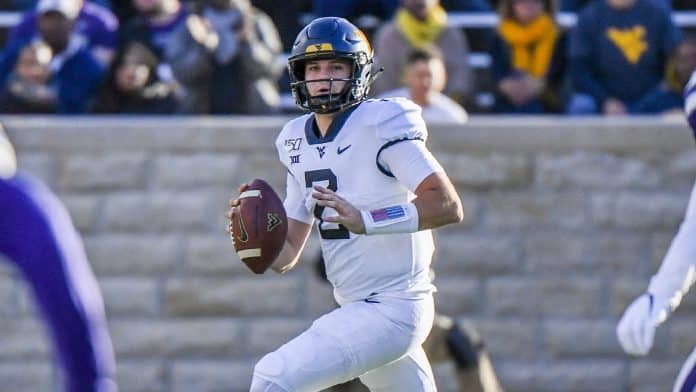
A proposal for a drastic change in the transfer rule for college athletes is under consideration by the NCAA. Saying it will “change college sports as we know it” is a bridge too far. But the idea that “free agency” https://voiceofmotown.com/ncaa-on-verge-of-free-agency/ will enter the college sports landscape has validity.
Here is quick synopsis of the proposal. Currently, undergraduate athletes who complete in these five sports – football, men’s basketball, women’s basketball, baseball and men’s ice hockey – that transfer from a Division I program to another Division I university are required sit out a season before becoming eligible for their new school. The requirement can be waived for “extraordinary” circumstances. What qualifies as “extraordinary” has been arbitrarily applied to its breaking point.
The new proposal would return much tighter restraints on what is considered “extraordinary” circumstances. Along with that, the proposal would allow undergraduate athletes in all sports a one-time opportunity to transfer to another Division I university without missing a season. If an athlete wants to transfer again, s/he will have to sit out a season, sans actual “extraordinary” circumstances.
If implemented, the proposal would take effect for the 2020-21 academic year.
What does this mean for your beloved West Virginia Mountaineers?
For the purposes of this discussion, we’ll focus on revenue sports – football and men’s basketball. The impact will be greater in football for two reasons. First, there are 85 scholarship players in football compared to 12 for basketball, so many more football players are affected. Second, because football players can’t leave for the professional draft until three years after high school graduation compared to one year for basketball players, the quality of potential transferring players is greater for football.
For the past decade, the WVU football program has been an active participant in accruing talent through transfers. The Mountaineers have gained far more talent from incoming transfers than they’ve lost from outgoing ones. This should accelerate under the proposed changes.
Nowhere has West Virginia benefited more from incoming transfers than the quarterback position. For the 2020 season, Oklahoma transfer Austin Kendall and Bowling Green transfer Jarret Doege will compete for the starting quarterback job. Doege will likely be the starter in 2021. If he is, it would mark the ninth-straight season that West Virginia’s leading passer wasn’t a WVU high school recruit.
More transfers available will benefit programs like WVU that rely so heavily upon them. The Mountaineers don’t get many five- and four-star players (especially quarterbacks) out of high school. They take advantage of when those players – for whatever reason – become disillusioned with the blue-blood programs they attend after high school and look for a more palatable situation. The ability to procure these players without the penalty of a required redshirt season will benefit mid-tier Power 5 programs like WVU.
There is a fear that, like free agency in professional sports, this proposed transfer rule will allow the rich to get richer. There is some validity to this fear. But while West Virginia isn’t Alabama or Ohio State “rich,” it also isn’t exactly “poor.”
Blue bloods are sure to use the new rules to poach good players on occasion. Look at this past season’s college football playoff participants. Three of the four starting quarterbacks were transfers.
But it’s also likely the blue bloods will lose more than they’ll gain from the change. Because those schools hoard premium high school talent, their rosters are filled with players who aren’t getting the playing time they expected/were promised. Sometimes that’s because the athlete just is not that good – he’s a “bust.” Sometimes, though, he’s a very good player who is blocked by another even better player.
That’s where schools like West Virginia actually have an advantage over schools like Alabama. Through transfers, the Mountaineers can improve their lineup at the expense of the Crimson Tide’s depth. It’s no surprise Alabama coach Nick Saban dislikes the proposed change.
“I don’t know how you manage a roster when this goes into effect. I can’t manage our roster now,” Saban told ESPN. “Last year, we had eight seniors on our team. We had seven guys go out for the draft and three graduate transfers or guys that ended up transferring. So instead of having 18 seniors, you’ve got eight. You really have a three-year program at a place like this. I’m not necessarily saying it’s going to hurt our program because we’ll do a hell of a job recruiting players leaving other places to come here. But is that good for college football?”
West Virginia is a Power 5 conference school. That’s the equivalent of the “First World” in college football. It’s unlikely the new proposal will lead to a massive exodus of good players leaving Morgantown. History suggests the talent ledger coming in will far outweigh what goes out.
That probably won’t be the case for non-Power 5 schools. An unnamed Power 5 coach said this to ESPN in regard to the potential winners and losers of the transfer-rule change.
“Group of 5: It’s going to kill them. They’re going to be our G League. They’ll be our little amateur league where we’ll draw good players from. Every kid wants to play in the Power 5. I don’t care what you say, that’s what you want.”
With all the downsides that come with WVU playing in the Big 12 (and there are), this is why it still beats the hell out of the alternative.
In basketball, West Virginia is less reliant on transfers under coach Bob Huggins than is the football program. The Mountaineers tend to gain and lose about equally with transfers, both ways the effect is more in depth than in top contributors.
Huggins unrelenting style tends to drive fringe and depth players out and his reputation tends to attract depth replacements. The new rules likely won’t have a significant positive nor negative impact on the basketball program, at least while Huggins is running it.
College sports is in a state of flux. New transfer rules, the (fairly) recent implementation of a college football playoff, conference realignment, the NCAA allowing athletes to profit from their names and likeness and more have many fans unsettled as to the future of the sport(s) they love. Change can be scary. Change can be hard.
For West Virginia fans, when it comes to the new transfer rules, change can also be good.






